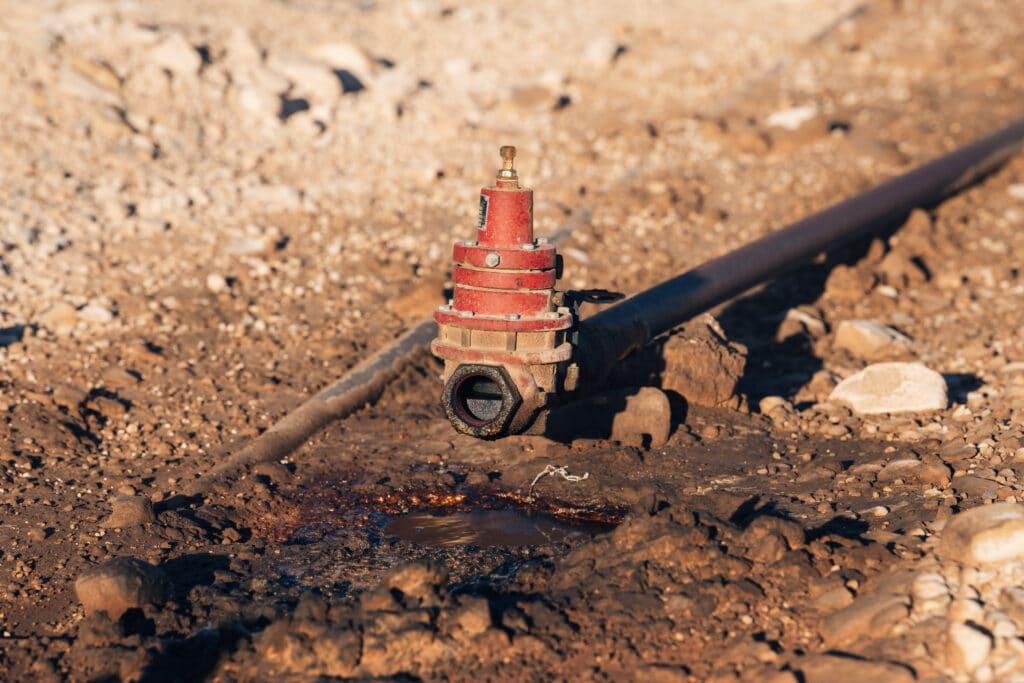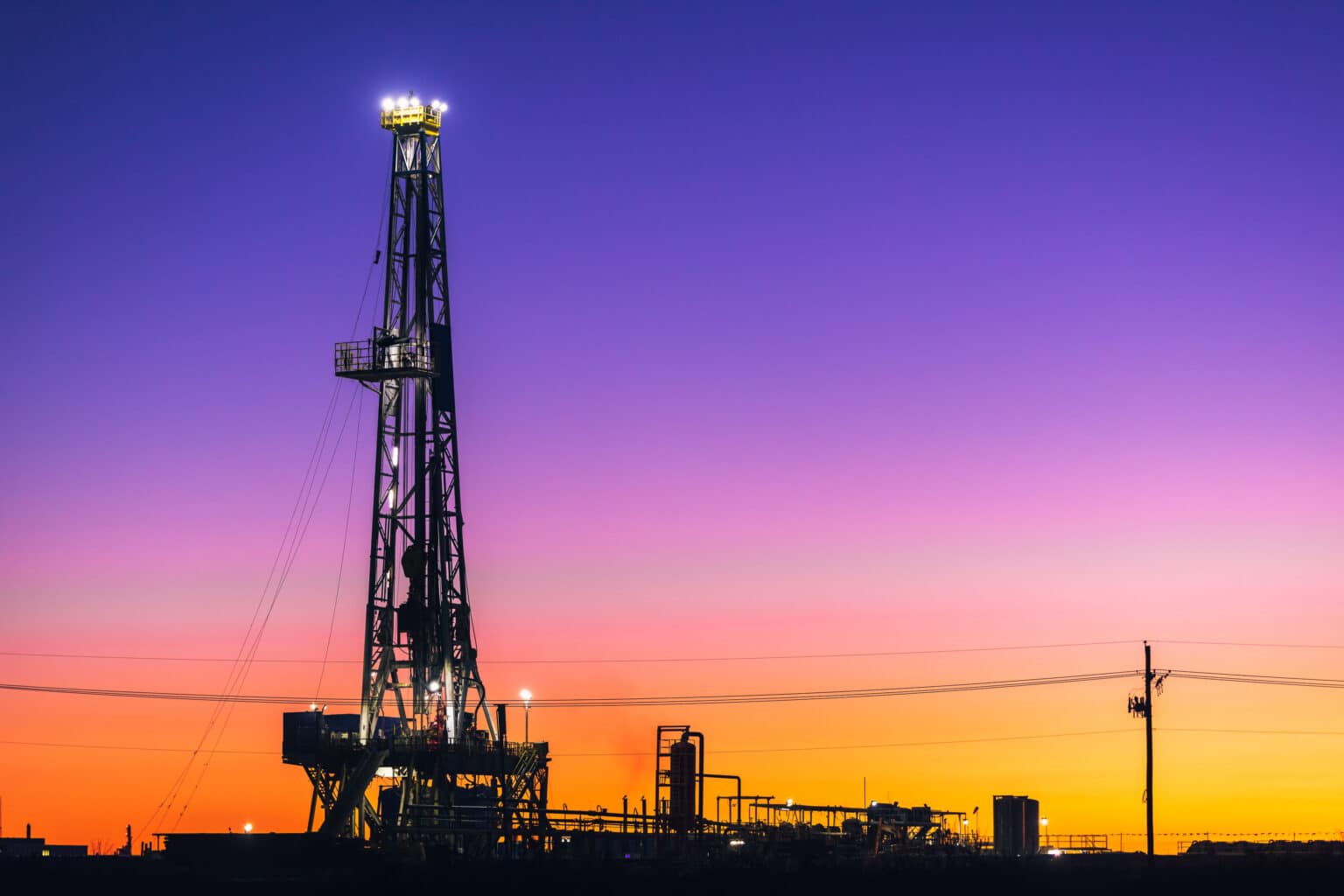When a Canadian company started drilling for oil and gas near Jim and Sue Franklin’s ranch in a small Permian Basin town called Verhalen, Texas, it didn’t bother the couple too much at first. But Sue suspects that it was the third well that started causing problems.
“They put up these big signs that said, ‘H2S gas, danger, keep out, blah blah blah,’” she says. The well was being drilled in what’s called a sour-gas field, an oil field that naturally has a high concentration of a deadly gas called hydrogen sulfide (H2S). The company promised the Franklins that the gas — which can cause headaches, irritate respiratory systems, and even be fatal in high concentrations — would never get into their home, despite the fact that it was barely a mile away.
Sue started waking up with “roaring headaches” and a rotten-eggs smell — a tell-tale sign of H2S — permeating the house. The Franklins complained about the poisonous gas in their home to the Texas Commission on Environmental Quality, which regulates air pollution. The agency, which only maintains non-binding recommendations for hydrogen sulfide emissions, never followed up directly, but the Railroad Commission did.
The commission, which regulates oil and gas drilling in Texas, once sent an inspector to meet with the Franklins, after it had shut down the polluting well temporarily. Eventually, the agency allowed it to continue producing sour gas. The Franklins decided they couldn’t take it anymore. They sold their land to the company and moved an hour south to Fort Davis — where all the recent exploratory oil and gas wells had come up dry.
A new report from the environmental watchdog group Earthworks alleges that the Railroad Commission’s lax enforcement against operators drilling in known sour-gas fields has endangered the health of Texans, like Jim and Sue Franklin, across the Permian Basin. Through public records requests and independent analysis of well locations and permits, Earthworks found that more than 10,000 wells in these fields — 51 percent of the 19,000 total wells — didn’t have the proper paperwork filed with the commission. Earthworks found that the commission simply doesn’t keep track of who is required to file a sour gas form, let alone who returns one.
Earthworks’ analysis of the data available indicates that of the operators who do return forms about the sour gas concentration in their wells, many may be underreporting concentrations in order to avoid stricter scrutiny. A concentration above 100 parts per million is supposed to trigger more safety protocols and employee trainings.
“Understand, the Railroad Commission doesn’t go to these sites or anything. It’s a worksheet you fill out, and check boxes,” says Sharon Wilson, a field advocate with Earthworks who authored the report.
Many wells in sour gas fields also have flaring permits, despite their absent hydrogen sulfide paperwork. The Railroad Commission hardly ever denies flaring permits, which allow companies to burn off excess gas onsite if they can’t otherwise capture it. In a sour gas field, that means that tons of climate-change-causing methane pollution is being released in the atmosphere along with hydrogen sulfide. “We found almost 2,000 instances of wells that did not have [the forms], that should have had them, and were still granted flaring permits,” says Jack McDonald, a field analyst with Earthworks.
The Earthworks report comes on the heels of another report published by Commission Shift, a nonprofit watchdog focused on the Railroad Commission’s policies. It analyzed the Commission’s ability to properly manage abandoned oil and gas wells across the state. “Our water supplies and the climate are threatened by these unplugged wells left behind by rule-breaking oil and gas companies,” says Virginia Palacios, the group’s executive director.
Abandoned wells can blow out, leaking thousands of pounds of methane emissions, toxic gasses, including hydrogen sulfide and benzene, and in one case, enough briny water to create a salt-water lake in the middle of the Permian Basin. Commission Shift’s report found that the Railroad Commission doesn’t adequately account for the cost of cleaning up abandoned wells when it permits new wells, which strains the available funds for clean up — and saddles taxpayers with the remaining cost.

In 2021, the Biden administration allocated more than $4 billion to plug abandoned oil and gas wells nationwide. Texas could be eligible for up to $340 million of that funding, according to Commission Shift. But that money can’t be stretched to fix every abandoned well waiting to blow out in Texas. “There’s a lot of competition for these resources to plug these wells,” Palacios says. Should states prioritize fixing wells that are leaking the most methane, or the ones that are leaking into groundwater? So far, Palacios says, the commission’s applications to the federal government indicate that it might use the money to remediate the most expensive problems, like offshore wells.
One recommendation both reports share is that the commission’s permitting process needs to be significantly slowed down until the agency can adequately deal with the thousands of polluting, dangerous wells that are scattered across West Texas’s Permian Basin — and a smaller number of wells in the Barnett Shale near Dallas-Fort Worth and the Eagle Ford Shale in South Texas.
The Railroad Commission’s lax policies, and its apparent lack of enforcement, have implications beyond Texas oil fields. Leakage at just 30 major wells, pipelines, and related facilities, which the agency also oversees, can cause upwards of 100,000 tons of methane pollution per year. The state’s contributions to global greenhouse gas emissions are largely in the hands of the three commissioners — all of whom, as previous reports from Commission Shift have found, have ties to the industry they regulate.
For instance, Commissioner Wayne Christian, a Republican who is up for re-election this year, has held and sold thousands of dollars in energy company stocks. A spokesperson for the agency did not return a request for comment about the reports’ findings.
Christian’s Democratic challenger, Luke Warford, has campaigned heavily on Texas’s grid infrastructure, in the wake of last year’s near-collapse of the state’s grid. But Warford’s campaign has offered virtually no indication of how the candidate might govern on the commission’s core business of well permitting, inspections, and enforcements. Warford did not return a request for an interview for this story.
In the meantime, residents like the Franklins are left to wonder if the rotten-egg smell that wafts over the Permian is behind their nosebleeds and aggravated asthma. “When my husband bought the property in Verhalen, he intended on retiring and dying on it,” Sue says. Recently, Wilson visited the Franklins’s old ranch, which is now owned by the drilling company. The smell of toxic gas still wafts over it.
CORRECTION (01/27/22): The original version of this article stated that Wilson observed lethal hydrogen sulfide concentrations at the Franklins’s former property. Earthworks does not have monitors to measure these concentrations and the article has been updated to reflect that.
Subscribe to our newsletter
Stay up to date with DeSmog news and alerts







